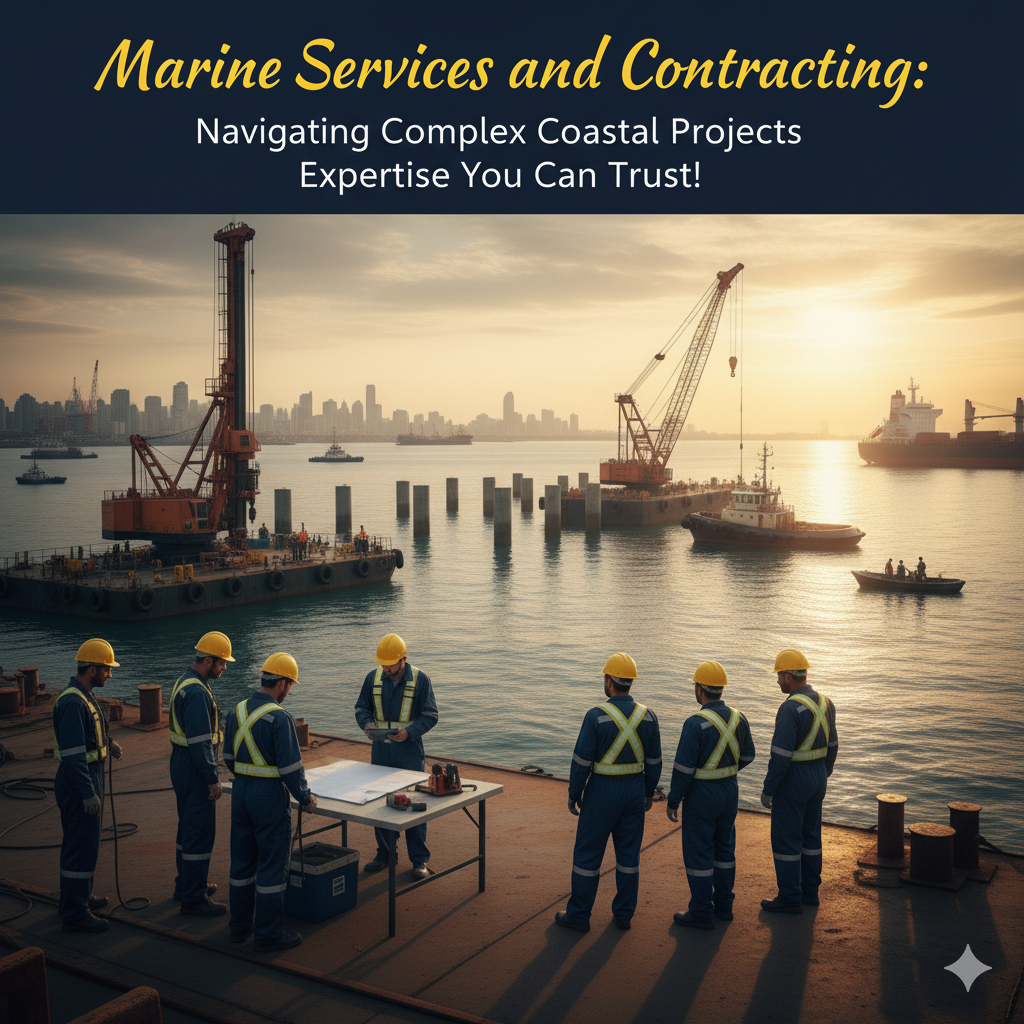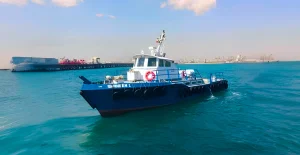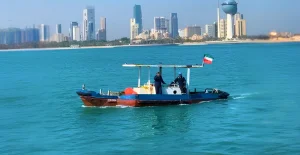Specialized knowledge is needed in the coastal infrastructure. Normal materials are destroyed in ocean environments in a short period of time. Metal is corroded by salt in a few months. The waves strike the structures incessantly. The tidal changes produce forces that have never been experienced by the land-based contractors.
The issues that can be dealt with by the marine service providers are those that cannot be or cannot be dealt with by normal construction companies. Welding of underwater structures, installation of piers, dredging work, etc. these are the works that require more equipment and skills than a normal contracting company can deliver.
Realizing the complexity of Marine projects.
Water transforms all in the construction logistics. Goods come in through barges rather than trucks. Project timelines are less important as to the work schedules which are dependent on the weather windows. When a storm hits it can close the operation in weeks.
Planning is complicated by tides. There are activities which can only be done in a low tide. There are those in need of large water to service equipment. The process of organizing the various stages of work according to tidal patterns needs experience that is acquired over years of working in coastal projects.
Specialization of Equipment.
Normal excavators and cranes do not work in the saltwater. Marine contractors have special aquatic fleet. Amphibious machinery is used on beaches and in water. Floating cranes deal with loads on unstable platforms.
Diving crews do a check up and fix underwater. Special tools are necessary to cut under water. Welding in water requires certifications that are in addition to normal welding certifications. ROVs (remotely operated vehicles) reach depths that are too hazardous to the divers.
Safety criteria are beyond normal building.
Water brings dangers unavailable in land projects. There is the danger of hypothermia even in hot weather. Workers are swept away by currents. Less visibility in the sea makes all the activities risky.
The companies that follow the marine contracting have safety measures that are based on these realities. Dive teams have stringent buddy systems. Monitors of surface workers are in constant monitoring of the underwater workers. Oxygen supplies in the case of an emergency are kept at hand. Diving related injuries are avoided through decompression procedures.
Selection of Qualified Marine Contractors.
The marine work is more related to experience than to any other work. Proven track record with similar projects is required in companies. Authorities of ports or municipalities at the coast are authoritative sources.
Inventory levels of equipment show capability levels. The owners of the specific equipment manage the projects more effectively as compared to those who hire machinery. Maintenance records indicate the state of whether gear receives adequate care.
Conclusion
The right contracting makes the projects successful even under difficult circumstances. Corner cutting on the sea results in those failures which are much more expensive than doing things right on the first attempt. Good marine contractors ensure investments and also provide infrastructure that can survive the rough coastal conditions over the decades.




